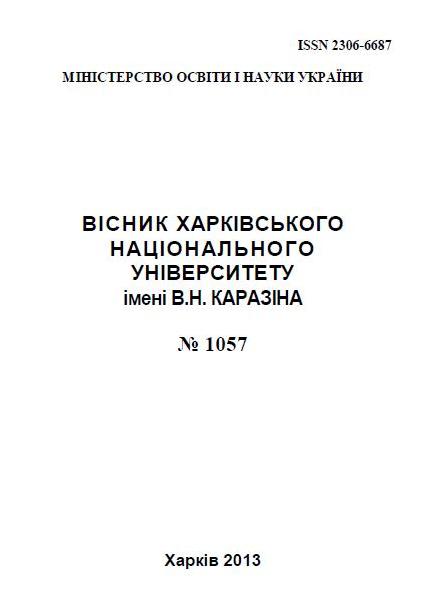СХІДНОСЛОВ'ЯНСЬКА МІФОЛОГІЯ І ЗВИЧАЄВЕ ПРАВО: ІНТЕГРАЦІЙНІ КОНЦЕПТИ
Abstract
У статті прослідковано зв'язок міфології і звичаєво-правових норм, проаналізовано народно-
світоглядний підтекст таких термінів звичаєвого права, як «рота», «видача на потік», «ордалії», тощо,
обгрунтовано положення про значення сакралізації права.
Грищенко Н.В. Восточнославянская мифология и обычное право: интеграционные
концепты. В статье рассматриваются интеграционные концепты мифологии и обычного права,
исследуются народно-мировоззренческие составляющие таких понятий обычного права, как «рота»,
«выдача на поток», «ордалии» и др., расскрывается значение сакрализации права.
Ключевые слова: мифология, символ, обычное право, интеграционный концепт, доказательство.
Grishchenko N.V. The East Slavic mythology and the Customary Law: integration concepts. The
article examined the link of mythology and customary legal norms, analyzed national ideological implications of
such terms of customary law as "rota" (meaning: oath, swear), "delivery of a stream" (meaning: exclusion from
the guardianship of family), "ordaliyi" (meaning: trial) etc.. Involving study of Ukrainian literature, the author
argues that under the influence of the East Slavic mythology in customary legal practice fixated using such
"transcendental" evidence, as the oath with calling of God's name to witnesses, trial by fire (hot iron), water,
"efficiency of land under turf", etc. The most revered elements by pagan – soil, fire, water, integrating in
customary and legal plane started acted as witnesses of criminal acts, detect violators. Such evidence of
mythological character considered authoritative and final, and the decisions taken by their participation, had not
subject to any appeal, because it was made by deities.
The author shows that braiding of sacred motifs in common, the legal framework provided firstnorms of
holiness and turned them into unquestionable authoritative requirements. Mythological representation correlated
with deep, subconscious levels of the human psyche. Statutory requirements that were based on them were
unconsciously-authoritarian in nature and did not cause any doubt, do not allow criticism and not subject to
refutation. As a result, the common law has been turned, on the one hand, to the sacred forces, on the other handto
a real life. The East Slavic Mythology performed a source of constant updating requirements of customary law
and ensuring its high social status. As a result of the study the author concludes that in order for people to
perceive, respected and fulfilled the law, they should be subject not only of knowledge but also of faith.
Key words: mythology, symbol, customary law, integration concepts, evidence.




